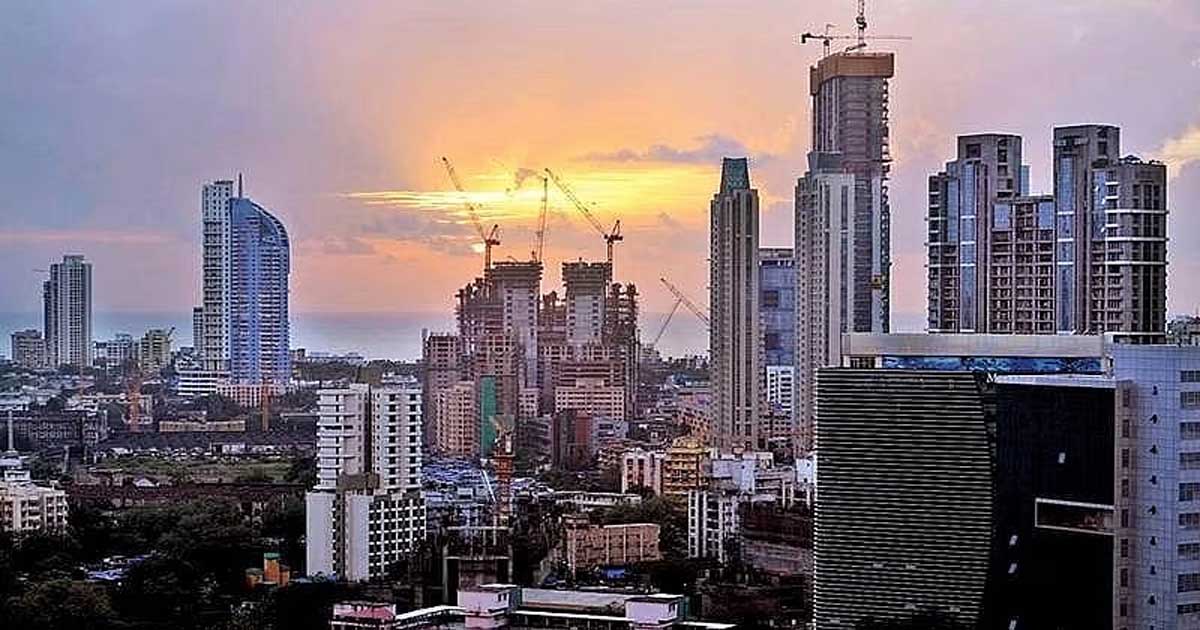Business
Nifty is due for a pause, may even ease in early part of 2022: Report
Even after the GDP bounce-back off the low Covid-19 base, India can manage a 7.7 per cent expansion in FY23 and hence deliver growth that is almost unrivalled globally, UBS said in a report.
Yet, after a stellar two years for the Nifty where it even left the S&P behind at times (even in US Dollar terms), we believe the valuation does not fully reflect upcoming headwinds, the report said.
These include rising interest rates both globally and in India, and importantly, the return of India’s historic soft spot, current account deficits. “These headwinds may affect not only the country’s stock market but also the INR. We hence believe a multi-month pause is in order, the recent correction notwithstanding,” the report said.
“All told, within the space of two years, the current account is likely to swing from its surplus of 0.9 per cent of GDP towards a 1.9 per cent deficit, in our view. We believe this will bring down the INR. We look for USDINR to trade towards 79 levels by end-2022,” UBS said.
Another interesting and potentially bearish aspect is the lopsidedness of recent inflows that have kept the market afloat. They are now derived almost exclusively from domestic retail investors. However, the past has shown that this type of flows can stop when markets no longer exhibit a steady rise, and potentially higher bank deposit rates could become a potent competitor again when the RBI starts to hike interest rates, UBS said.
India’s stock market left most emerging markets and even developed markets counterparts in the dust during 2020 and especially 2021. That said, and the structural appeal of the Indian market notwithstanding, we believe in the near term the Nifty is due for a pause, and may even ease in the early part of 2022, UBS said.
“A key reason is indeed the still lofty valuation premium. We expect this process to continue. The earnings growth of 28.3 per cent for FY22 and 11.7 per cent for FY23 works as a partial counter-force and will likely help to prevent a strong correction. At the same time, we stress that as is often the case, consensus estimates look implausibly high to us”, UBS said.
Still, financials should come to the fore on the back of rising loan growth, coupled with expanding interest margins. We also like cyclical names in the vehicle, cement and construction space. We believe materials stocks on multi-year high valuations will likely underperform as some supply tightness eases, the report said.
In our estimate, the central bank will likely start to slightly tighten policy measures from March and subsequently raise its repo rate around September, followed by a second rate hike later during the year to arrive at 4.5 per cent, the report said.
During the early part of the pandemic, exports held up reasonably well while imports plummeted. Yet, for FY23, we expect only small export growth while imports should come roaring back as the economy reopens further and oil prices are rising.
Business
India’s CPI inflation declines to 8-year low of 1.54 pc in September

New Delhi, Oct 13: India’s inflation rate based on the Consumer Price Index (CPI) declined to an over 8-year low of 1.54 per cent in September this year, compared to the same month of the previous year, as prices of food items and fuels turned cheaper during the month, according to figures released by the Ministry of Statistics on Monday.
This is the lowest year-on-year inflation after June 2017, and is also lower than the inflation rate of 2.05 per cent for August.
Food inflation continued in the negative zone for the fourth consecutive month and was recorded at -2.28 per cent during September, the figures showed.
“The decline in headline inflation and food inflation during September is mainly attributed to a favourable base effect and the decline in inflation of vegetables, edible oils, fruits, pulses, cereals and egg. Besides, fuels also turned cheaper during the month,” the official statement said.
The inflation outlook for 2025-26 has become more benign due to large favourable base effects combined with the good southwest monsoon, healthy kharif sowing, adequate reservoir levels and comfortable buffer stocks of foodgrains. The GST rate cuts, which kicked in on September 22, are bringing down prices across goods which will result in reducing inflation further in the coming months.
The decline in the inflation rate gives the RBI more headroom to continue with a soft money policy by cutting interest rates and injecting more money into the economy to spur growth.
The RBI’s monetary policy committee (MPC) on October 1 slashed its forecast for India’s inflation rate for the financial year 2025-26 to 2.6 per cent from 3.1 per cent in August primarily on account of the GST rate cuts and benign food prices.
RBI Governor Sanjay Malhotra said, “The recently implemented GST rate rationalisation would lead to a reduction in prices of several items in the CPI basket. Overall, the inflation outcome is likely to be softer than what was projected in the August monetary policy committee resolution, primarily on account of the GST rate cuts and benign food prices.”
Addressing journalists after the MPC meeting, Malhotra said that the “overall inflation outlook has turned even more benign in the last few months.”
The RBI Governor pointed out that headline CPI inflation declined to its eight-year low of 1.6 per cent year-on-year in July 2025 before rising to 2.1 per cent in August – its first increase after nine months. Benign inflation conditions during 2025-26 so far have been primarily driven by a sharp decline in food inflation from its peak of October 2024.
Inflation within the fuel group moved in a narrow range of 2.4-2.7 per cent during June-August. Core inflation remained largely contained at 4.2 per cent in August. Excluding precious metals, core inflation was at 3.0 per cent in August.
The RBI Governor further stated that the current macroeconomic conditions and the outlook has opened up policy space for further supporting growth.
Business
Mumbai’s Chembur & Malabar Hill To Undergo ₹4,800 Crore Redevelopment By Bengaluru-Based Builders

Mumbai: A Bengaluru-based real estate developer, Puravankara Ltd, has announced two major redevelopment projects in Mumbai, adding significant weight to its western portfolio in the first half of the current financial year. The company, which has also added two projects in Bengaluru, has recorded a total gross development value (GDV) of ₹9,100 crore across all four projects.
In Mumbai, Puravankara has bagged a marquee redevelopment project in the upscale Malabar Hill area of South Mumbai. Spread across 1.43 acres, the project will offer 0.7 million square feet of development potential, valued at around ₹2,700 crore.
The second project is located in Chembur and involves 1.2 million square feet of development on 4 acres of land, carrying an estimated value of ₹2,100 crore. Both projects are part of Puravankara’s strategy to strengthen its redevelopment footprint in Mumbai’s prime and emerging residential zones, according to a report by HT.
“Our growth momentum remains strong, supported by sustained demand and timely project execution,” said Ashish Puravankara, Managing Director of Puravankara Ltd. “In the first half of FY26, we expanded our portfolio with over 6.36 million square feet of developable area worth around ₹9,100 crore.”
The company reported pre-sales of ₹1,322 crore in the July–September quarter of FY26, up 4% from ₹1,270 crore last year. For the first half of FY26, total pre-sales stood at ₹2,445 crore, also reflecting a 4% increase. The average realisation improved to ₹8,814 per sq ft in Q2 FY26, up 7% year-on-year.
Industry experts note that Mumbai’s redevelopment market continues to attract strong interest from national developers, thanks to rising property prices and limited land availability. With its Malabar Hill and Chembur projects, Puravankara is positioning itself as a key player in the city’s high-value redevelopment segment.
Business
BLS International shares crash 17 pc after MEA bars company from new tenders for 2 years

Mumbai, Oct 13: Shares of BLS International Services plunged sharply on Monday after the Government barred the company from participating in future tenders of the Ministry of External Affairs (MEA) and Indian Missions abroad for the next two years.
The stock crashed as much as 17.85 per cent to hit a 52-week low of Rs 277 apiece on the Bombay Stock Exchange (BSE).
The MEA had issued the directive on October 9, restricting BLS International from bidding for new tenders.
However, the company clarified that the order will not affect its ongoing contracts or financial performance.
“This development does not impact the company’s current financials or ongoing operations. All existing contracts with Indian Missions across the globe remain valid and continue to operate as scheduled,” BLS International said in a regulatory filing.
“Additionally, the order will not have any significant bearing on the company’s financial outlook,” the firm added.
The company added that it is working to resolve the issue and considers it a procedural development within the visa outsourcing industry.
“We remain confident of a constructive resolution in due course,” the company stated.
In the first quarter of FY26, Indian Missions contributed around 12 per cent to BLS International’s consolidated revenue and about 8 per cent of its EBITDA.
Despite its recent fall, BLS International has been a strong long-term performer. The stock has declined 21 per cent in the past month, over 24 per cent in three months, and nearly 40 per cent so far in 2025.
However, it has still gained 17 per cent in two years and delivered a massive 1,455 per cent return over the past five years.
During the early trade, BLS International shares were trading 14.40 per cent lower at Rs 288.65 on the BSE.
-

 Crime3 years ago
Crime3 years agoClass 10 student jumps to death in Jaipur
-

 Maharashtra1 year ago
Maharashtra1 year agoMumbai Local Train Update: Central Railway’s New Timetable Comes Into Effect; Check Full List Of Revised Timings & Stations
-

 Maharashtra12 months ago
Maharashtra12 months agoMumbai To Go Toll-Free Tonight! Maharashtra Govt Announces Complete Toll Waiver For Light Motor Vehicles At All 5 Entry Points Of City
-

 Maharashtra1 year ago
Maharashtra1 year agoFalse photo of Imtiaz Jaleel’s rally, exposing the fooling conspiracy
-

 National News1 year ago
National News1 year agoMinistry of Railways rolls out Special Drive 4.0 with focus on digitisation, cleanliness, inclusiveness and grievance redressal
-

 Maharashtra11 months ago
Maharashtra11 months agoMaharashtra Elections 2024: Mumbai Metro & BEST Services Extended Till Midnight On Voting Day
-

 National News1 year ago
National News1 year agoJ&K: 4 Jawans Killed, 28 Injured After Bus Carrying BSF Personnel For Poll Duty Falls Into Gorge In Budgam; Terrifying Visuals Surface
-

 Crime12 months ago
Crime12 months agoBaba Siddique Murder: Mumbai Police Unable To Get Lawrence Bishnoi Custody Due To Home Ministry Order, Says Report












